SEO is not that hard to learn. All you have to do is be willing to allocate the necessary time and effort to learn the various SEO concepts.
If you are just getting started with SEO and wondering what it takes to go from novice to expert, then this post is for you.
You’ll learn how to approach the SEO learning process and the path to follow to make it less difficult than it seems.
I started with SEO 17 years ago and it took me a couple of years to get a fair understanding of what is SEO and how it works.
Fortunately, things have changed and you don’t have to spend years to learn SEO. There are a plethora of online resources you can use to start learning SEO and why not become an SEO expert in no time!
In this guide:
- Is it hard to learn SEO if you don’t know anything?
- How long will it take to learn SEO?
- SEO Learning Plan for Beginners (7 Solid Steps)
- SEO Certifications and Courses
Is it hard to learn SEO if you don’t know anything?
A popular question many people ask is: “How hard is to learn SEO if you are starting from scratch?”
It’s a fair question if you consider that not all people know what Search Engine Optimization is all about and what it entails.
The answer is simple. It is hard because there is a lot of information to read about search engines and how the optimization process works, and this can be overwhelming at first.
But, if you take it step-by-step and follow a structured learning approach (learning plan), everything will start to make sense and the whole process will become easier.
A learning plan will keep your focus on the important aspects of SEO and help you build your skills and knowledge gradually as you go along.
What’s the SEO Learning Curve like?
It will be very steep at the beginning because besides SEO you’ll have to familiarize yourself with concepts related to search engines and digital marketing.
This is necessary in order to understand the role of SEO in online marketing. Once you pass this phase and start practicing SEO, it will be smoother and easier to manage.
Do I need a computer science or marketing degree to learn SEO?
No, you don’t need a formal education to learn SEO. As you will see below there are many online courses you can follow to become SEO certified.
When does SEO Learning stop?
SEO learning never stops. Google is making hundreds of changes to their search algorithms per year and this means that you need to keep enriching your skills and knowledge.
How long will it take to learn SEO?
It depends on the effort and time you will allocate. SEO is not only theory but it’s a highly practical discipline.
The SEO theory will tell you what you should do to make your website SEO friendly but it’s how you apply the SEO principles in practice that will make a difference to your rankings and traffic.
From my experience, if you follow a solid learning plan and put the required effort, you can learn the basics in less than 6 months.
During this period, most of your time will be allocated to practicing SEO and not just reading the theory.
The reason that I gave 6 months as a minimum period is that it takes time for SEO to work and you may have to wait a couple of months (or more), to see the impact of SEO related changes to a website.
SEO Learning Plan for Beginners
I’ve mentioned above that one of the most efficient ways to learn SEO as fast as possible is to follow a learning plan and this is exactly what you’ll read below.
So, if you want to learn how to do SEO on your own, follow these 7 steps:
- Learn how search engines work
- Understand the role of SEO in Digital Marketing
- Understand what is SEO and why it’s important
- Learn about the different SEO processes
- Learn more about keywords and the keyword research process
- Learn how to measure SEO performance
- Put SEO to work
Step 1: Learn how search engines work
SEO stands for Search Engine Optimization and since the whole process has to do with how to increase the visibility of a website in search engines, it makes sense to know how search engines work.
I highly recommend to read the related guides below and watch the above video, they will give you a very good idea on how search engines approach the crawling, indexing and ranking of websites in their results.
Related Guides:
Step 2: Understand the role of SEO in Digital Marketing
Before getting into the nuts and bolts of SEO, you should have clear in your mind what is the role of SEO in digital marketing.
SEO is part of search engine marketing. SEM is the process of getting traffic from search engines either organically (through SEO) or using paid search ads.
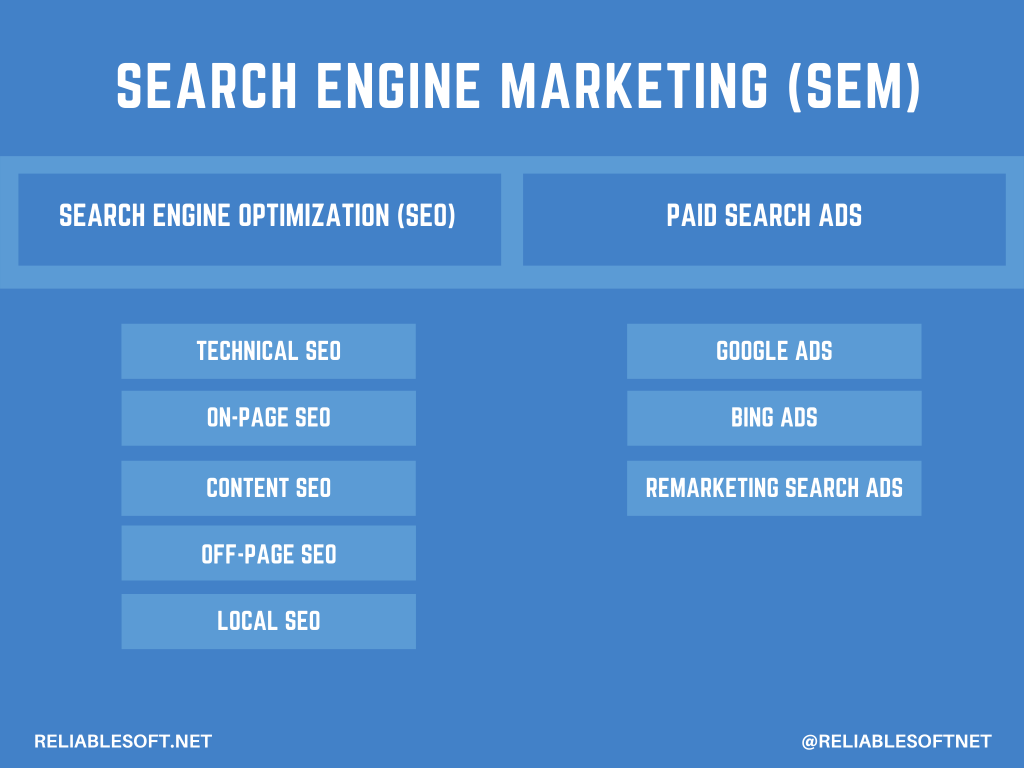
SEM is one of the channels available in Digital Marketing. Other channels include Social media marketing, email marketing, content marketing, etc.
So, SEO is not the same as paid advertising and it’s not the only component of search engine marketing.
Related Guides:
Step 3: Understand what is SEO and why it’s important
The next step is to understand what we actually mean when we talk about search engine optimization and why it’s an important process for any website.
SEO can be defined as a set of rules you can apply on a website so that it appears in the top positions in the search engine result pages (SERPS) for related keywords.
Why is this important?
The majority of search engine traffic goes to the websites that appear in the first 5 positions of the search results.
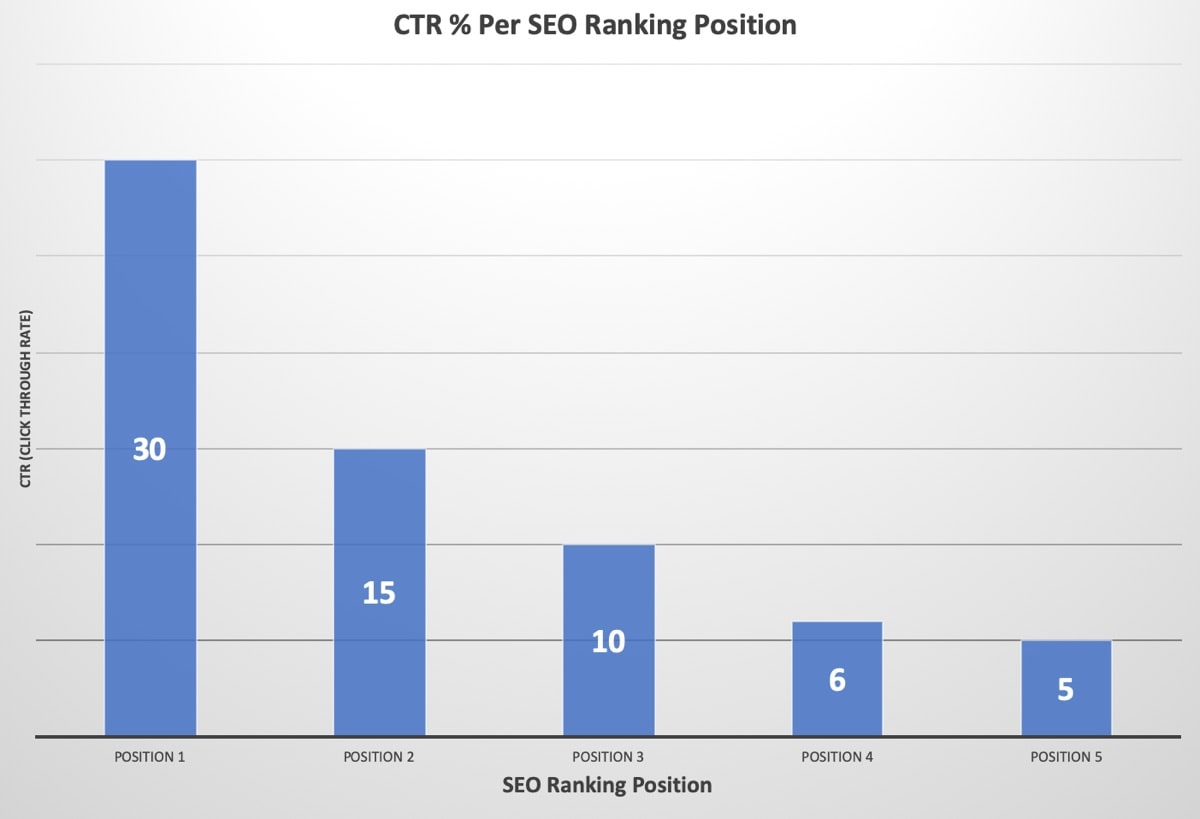
This means that if you want to get traffic from Google and other search engines, your website has to appear in the top positions for the search terms that matter for your business.
Step 4: Learn about the different SEO processes
Now that you know what is SEO, the next step is to learn how it works.
There are more than 255 SEO ranking factors to consider when optimizing a website and for ease of reference, they are broken down into a number of sub-processes.
Each sub-process is responsible for a number of SEO rules.
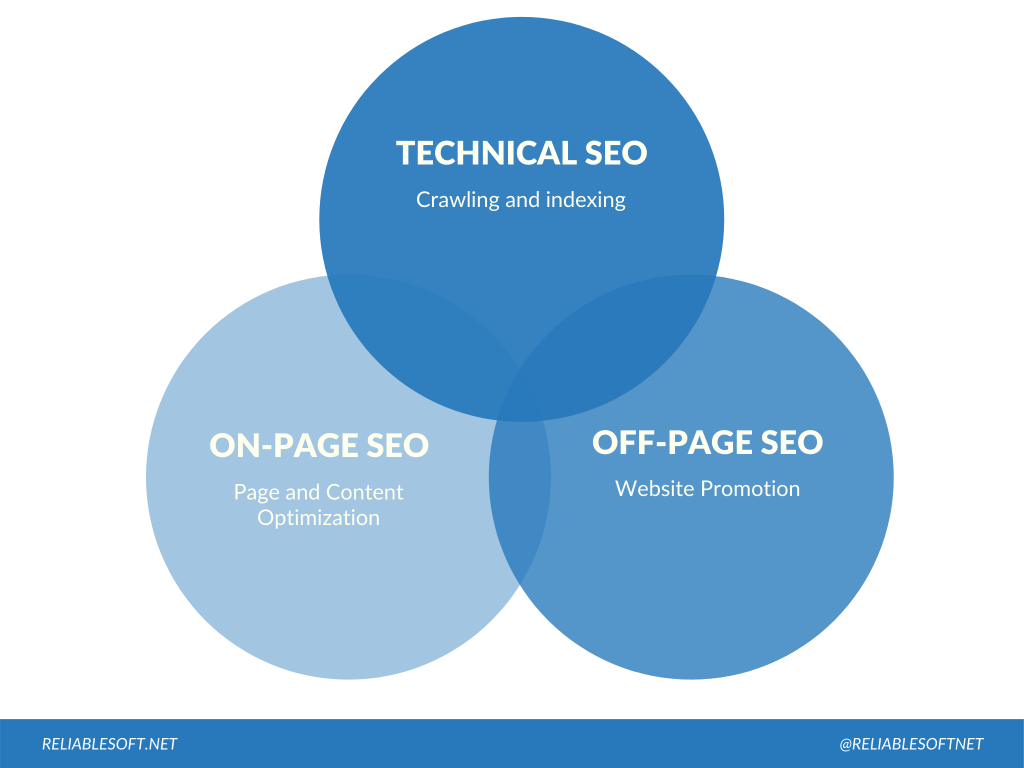
The most important are:
- Technical SEO – the process responsible for crawling the indexing phase.
- On-Page SEO – the process responsible for optimizing the content of a page so that search engine crawlers can understand it better.
- Off-Page SEO – the process of promoting your website on the Web for the purpose of getting links from other websites. Links in SEO act as ‘votes of trust’ and can positively influence the rankings of a website in the search results.
Step 5: Learn more about keywords and the keyword research process
When you get to this point, you should already know that everything in SEO starts with a keyword.
SEO keywords are search phrases users type in a search engine that is important for the particular website.
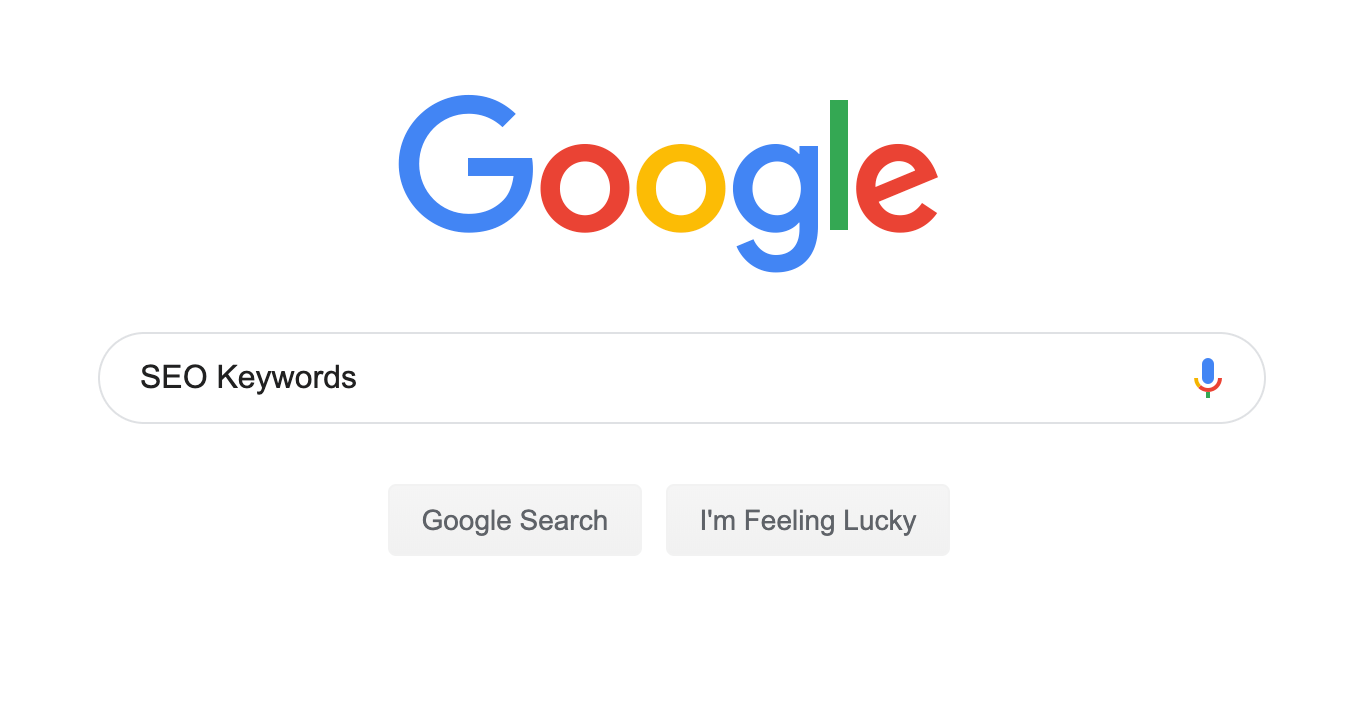
Once you get passed the technical SEO phase, which has to do with infrastructure-related settings, the other SEO phases are strongly related to keywords.
The process to find out which keywords to target in your content, is called keyword research.
So, mastering keyword research is an integral part of your SEO learning plan.
Related Guides:
Step 6: Learn how to measure SEO performance
The next step has to do with measuring SEO performance. This is critical because if you don’t know what to measure and what KPIs to analyze, you won’t know if your SEO campaigns are successful or not.
To measure SEO performance, you need to learn how to use two important tools: Google Search Console and Google Analytics.
The Google Search Console (GSC) will give you insights on how your website is performing on Google. You can see which pages receive traffic from Google and for which keywords.
Google Analytics will tell you what users do once they visit your website. You can find out which pages they visit, how long they stay on a page, and a number of other useful metrics.
Step 7: Put SEO to work
Last but not least, it’s time to put SEO to work. That’s the only way to verify what you have learned in the above steps.
The best approach for beginners is to choose a topic you’re passionate about and start a blog.
It’s doesn’t have to be something fancy or too popular, just pick a topic you know well, set up a website, and start optimizing it for search engines.
At this stage, you’ll most probably have to re-visit some of the guides and remind yourself how to do keyword research, how to optimize your page titles, how to check that search bots can access your content, and a lot of other things.
To avoid getting lost, it’s best to create an action plan and use checklists to help you keep track of what you have to do at each stage. The two guides below will show you exactly how to do this.
SEO Certifications and Courses
One of the easiest and most effective ways to learn SEO from scratch is to enroll in an SEO Course.
As you have seen in the learning plan above, there are many SEO concepts to master, and many things to learn and having everything you need to know in one place can save you a lot of time and effort.
A good SEO course will teach you both the basics of SEO and the more advanced concepts. With relevant real-life examples and easy to follow instructions, it can make the learning process easier and faster.
SEO Certifications and Courses – This list includes the 10 best SEO courses you can enroll today. All courses come with an SEO certification that can prove very useful if you plan to pursue an SEO Career.
SEO Training Guide – A list of both free and paid resources that can help you get started with SEO.
Key Learnings
It is possible to learn how to do SEO on your own, you don’t have to be an SEO specialist or expert.
The first thing to do is convince yourself that SEO is not hard. If others can do it, so can you. All it takes is the willingness to learn and time.
If you know nothing, don’t get stressed, there is a lot to learn but with the right approach, you can get there in less than 6 months.
The most effective way to teach yourself SEO is to enroll in a good SEO Course.
Good courses are paid but the small investment you will make will save you a lot of time and frustration than trying to learn SEO on your own without guidance.

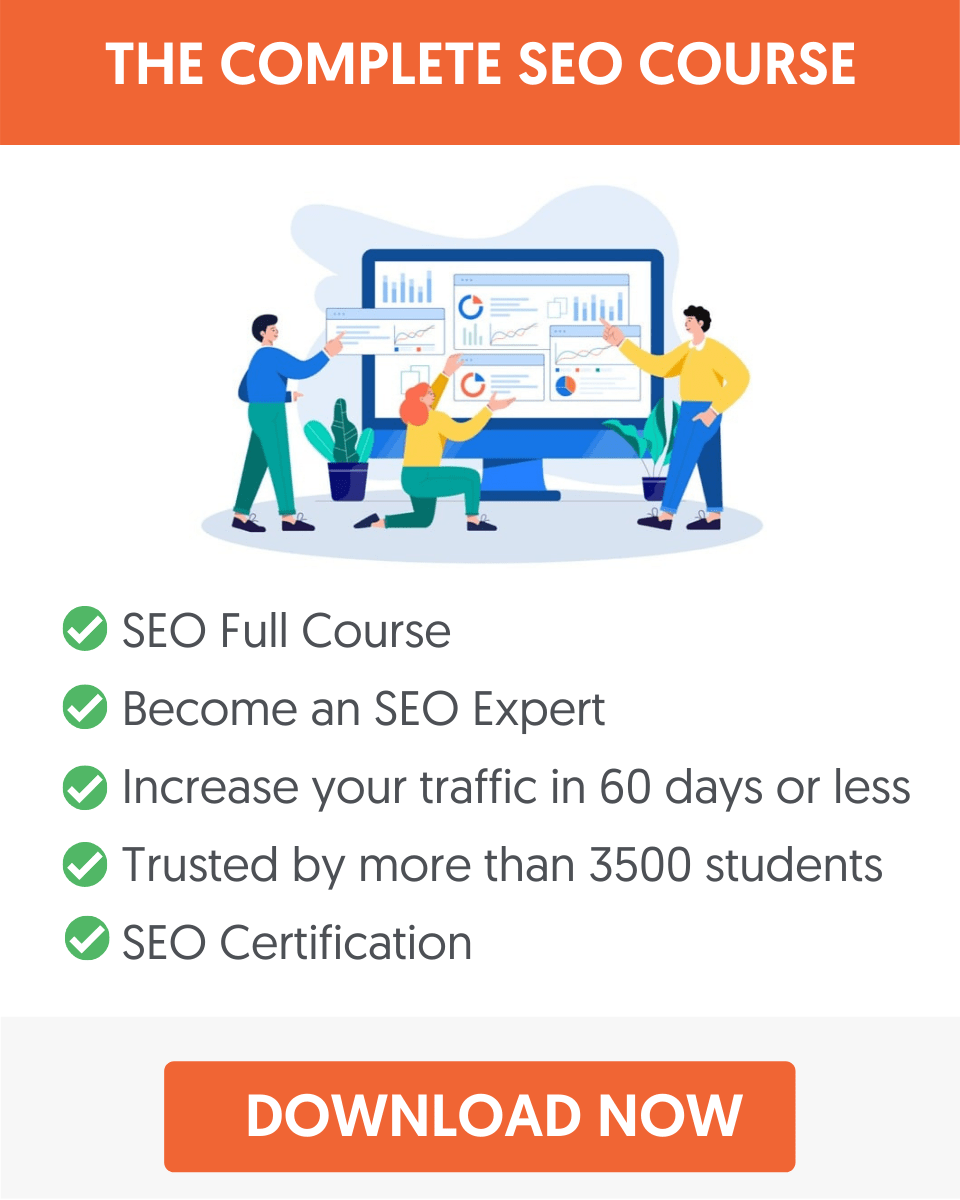

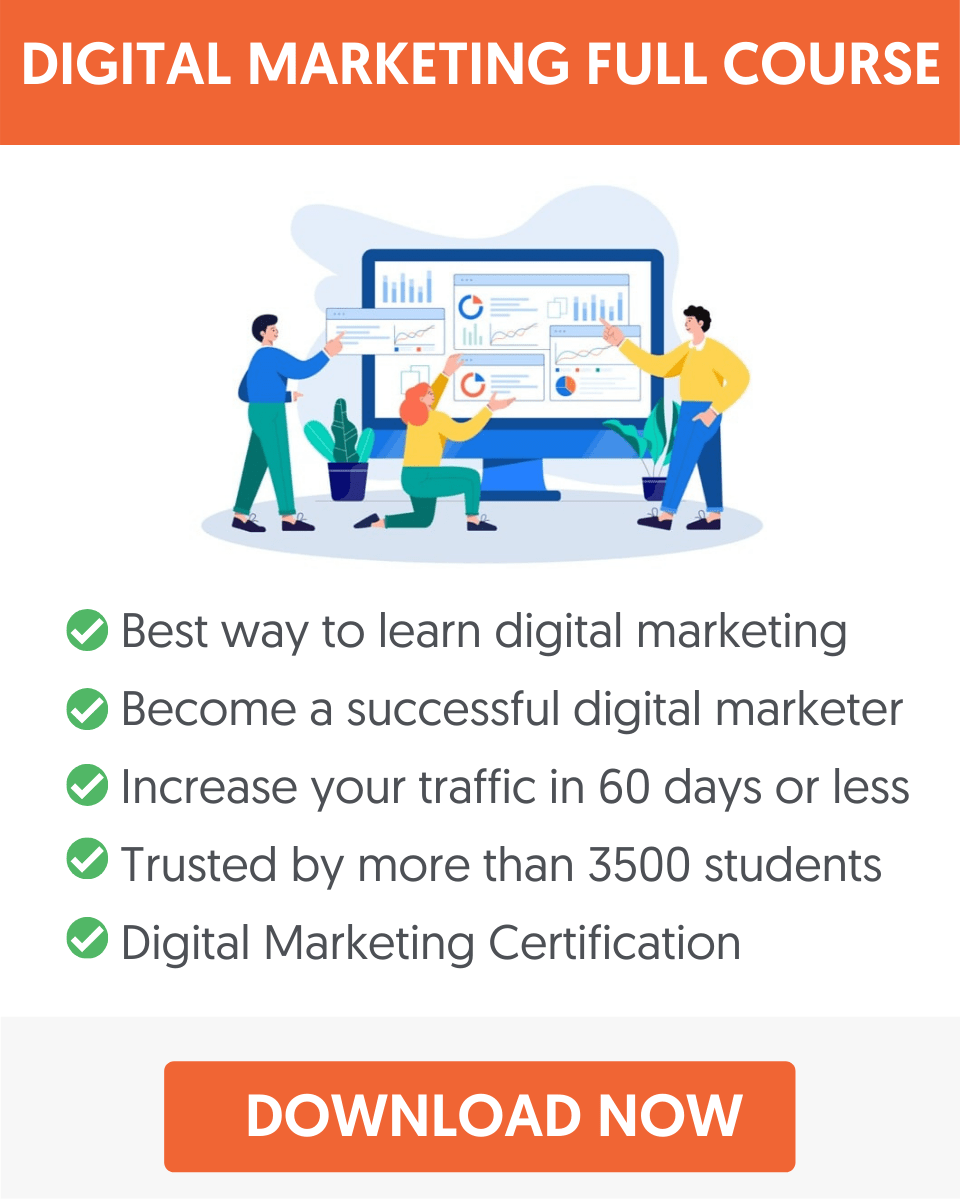

Your post touches upon a lot of great points, but ultimately I think the most important thing is that as writers we should always write for the reader and never for the search engines. If you write in a natural and authoritative way, the keywords and keyphrases will follow along by default, and you’ll be optimizing your content without overthinking it.
Hi Ravi
That’s correct. The primary role of SEO is to make the experience of the user better and writing great content that satisfies the user intent, is a good place to start!
All the best
Alex
Hi Alex
Awesome post!
Couldn’t agree more, SEO is an ongoing process and always evolving as search engines keep releasing algorithms. I guess that what keeps you on your toes.
All the best!
I am a beginner. This post just gave a very clear idea of actions to take. Thanks a million Alex.